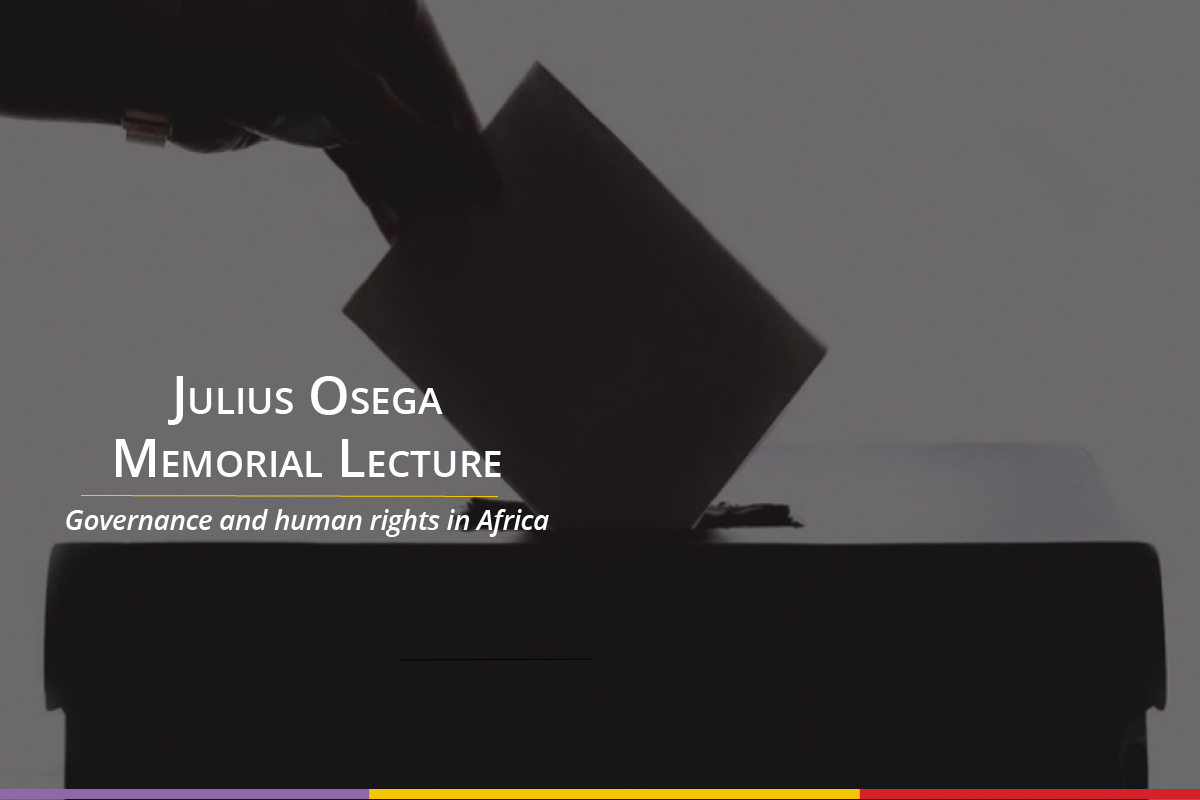On 23 July 2020, the Centre for Human Rights, Faculty of Law, University of Pretoria, in collaboration with the University of Ghana and the University of Nairobi, hosted the first online Julius Osega Memorial Lecture. The theme of this year’s lecture was Governance and human rights in Africa.
Video: Julius Osega Memorial Lecture 2020
The Julius Osega Memorial Lecture is an annual event, aimed at remembering the life of one of the graduates of the Centre’s Master’s degree in Human Rights and Democratisation in Africa (HRDA). The annual lecture is organised by the Centre for Human Rights, University of Pretoria, together with one or more of its partners on the HRDA programme. Julius was a student on the programme in 2001, the second year the programme was running. Sadly, Julius was killed in 2008, during a civilian patrol in the Darfur region of Sudan. At the time, Julius was part of the African Union/UN Hybrid operation in Darfur (UNAMID) forces, deployed to protect civilians and assist the political process in the country.
Prof Kwadwo Appiagyei-Atua from the University of Ghana and Prof Edwin Abuya from the University Nairobi were the panellists at the 2020 Julius Osega Memorial Lecture.
In his presentation on Forging an African Governance/Human Rights Identity in a Post-COVID World Order, Prof Appiagyei-Atua discussed the emergence of a ‘New World Order’ and Africa’s place in it. His presentation sought to answer the question: why is Africa where it is today? He described Africa’s global marginality, poverty and lack of agency in international relations despite the continent’s huge potential and possible contributions to the development of international law. He postulated about how the post-COVID world order presents an opportunity for Africa to adopt a multifaceted agency approach to develop a soft power status. Prof Appiagyei-Atua stressed how radical governance, a human rights approach as well as the democratisation of the African Union (AU) would ultimately accomplish two goals: one, to give greater legitimacy to civil society and non-governmental organisations and two, to improve Africa’s contribution to international law thereby increasing Africa’s chances of gaining a soft power status.
In his presentation on Governance in Universities: Embracing the Rights of Learners with Physical Disabilities, Prof Abuya focused on how governance is steered towards implementing effective policies for the rights of learners with physical disabilities in universities. He asked participants to reflect on their institutions and how its governance affects learners with physical disabilities. He discussed barriers such as admission requirements, accessibility and whether institutions are making learning environments disability friendly for learners with physical disabilities. He highlighted the notion of ‘nothing about us without us’ and how inclusion in the policy-making process is of utmost importance. Prof Abuya proposed strategies that African universities could adopt in ensuring that the rights of learners with physical disabilities are protected. Such strategies include resource mobilisation and utilisation (including budgeting strategies) as well as advocacy and education campaigns to adequately steer the ship of governance.
The Julius Osega Memorial Lecture was followed by a question and answer session. The 2020 lecture was organised by the Centre, in collaboration with its partners in the HRDA programme, namely, the University of Ghana and the University of Nairobi. The lecture was held on Zoom.
For more information, please contact:


